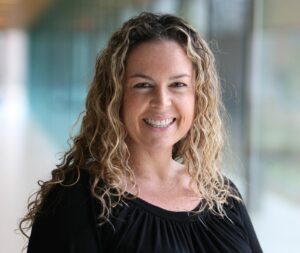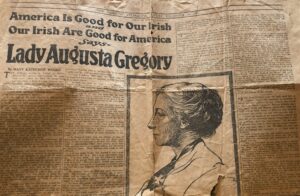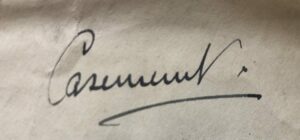
Mother Ireland
Dr Ellen Scheible discusses her recent Maddock Research Fellowship exploring the idea of ‘Mother Ireland’ among the collections at Marsh’s Library and Farmleigh House.

Dr Ellen Scheible
I was thrilled to travel to Dublin during the beautiful month of May to visit such an exquisite and charming library. I am interested in how Irish writers use representations of ‘Mother Ireland’ to show a relationship between Irish femininity, motherhood, and the nation. These ideas are explored in a book I am finishing titled Body Politics in Contemporary Irish Women’s Fiction: The Literary Legacy of Mother Ireland.
The Benjamin Iveagh Library at Farmleigh House in the Phoenix Park provided access to texts collected during the early periods of the Irish Free State that show a developing trend of using women as metaphors for the nation.

Article from New York newspaper ‘The Morning Telegraph’, 1911
These materials include texts focusing on the nationalism of the Abbey Theater, letters and newspaper articles from Lady Gregory describing her experience during the Easter Rising and the Irish Civil War, and letters from Roger Casement while he was in prison before his execution. I was also able to read newspaper clippings about the state of Ireland during the Famine from Maria Edgeworth’s letters and looked at memorabilia that shed light on the economic perspective of the British during the mid-nineteenth century.
I was particularly pleased to find a quotation from Roger Casement that I plan to use as the epigraph for my book: ‘We – Protestants – must show first that we are as good Irishmen as the Catholics – that everything dear to Ireland’s heart and […] in her sorrow-stricken past is dear to us too; that we look to Ireland as our Mother and give our time and energies and lives to her as to a Mother.’ (Letter to Colonel Robert Gordon Berry, 15 February 1905).
I hope to return to study the many boxes of letters at Farmleigh House to learn more about Roger Casement’s relationship to Catholicism and his revolutionary participation in Irish independence.

Roger Casement’s signature
Dr. Ellen Scheible, Professor of English and Irish Studies at Bridgewater State University in Massachusetts, USA




